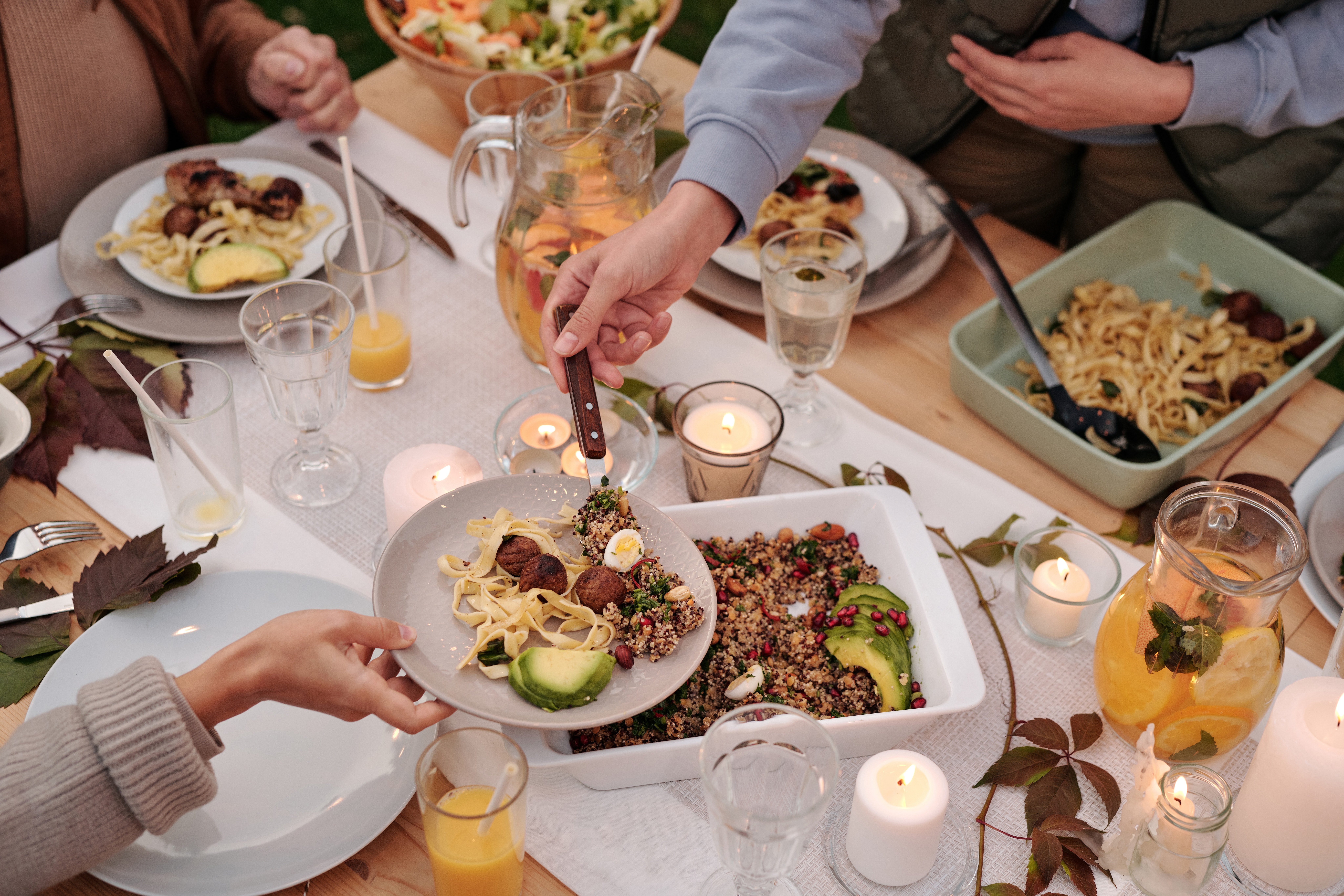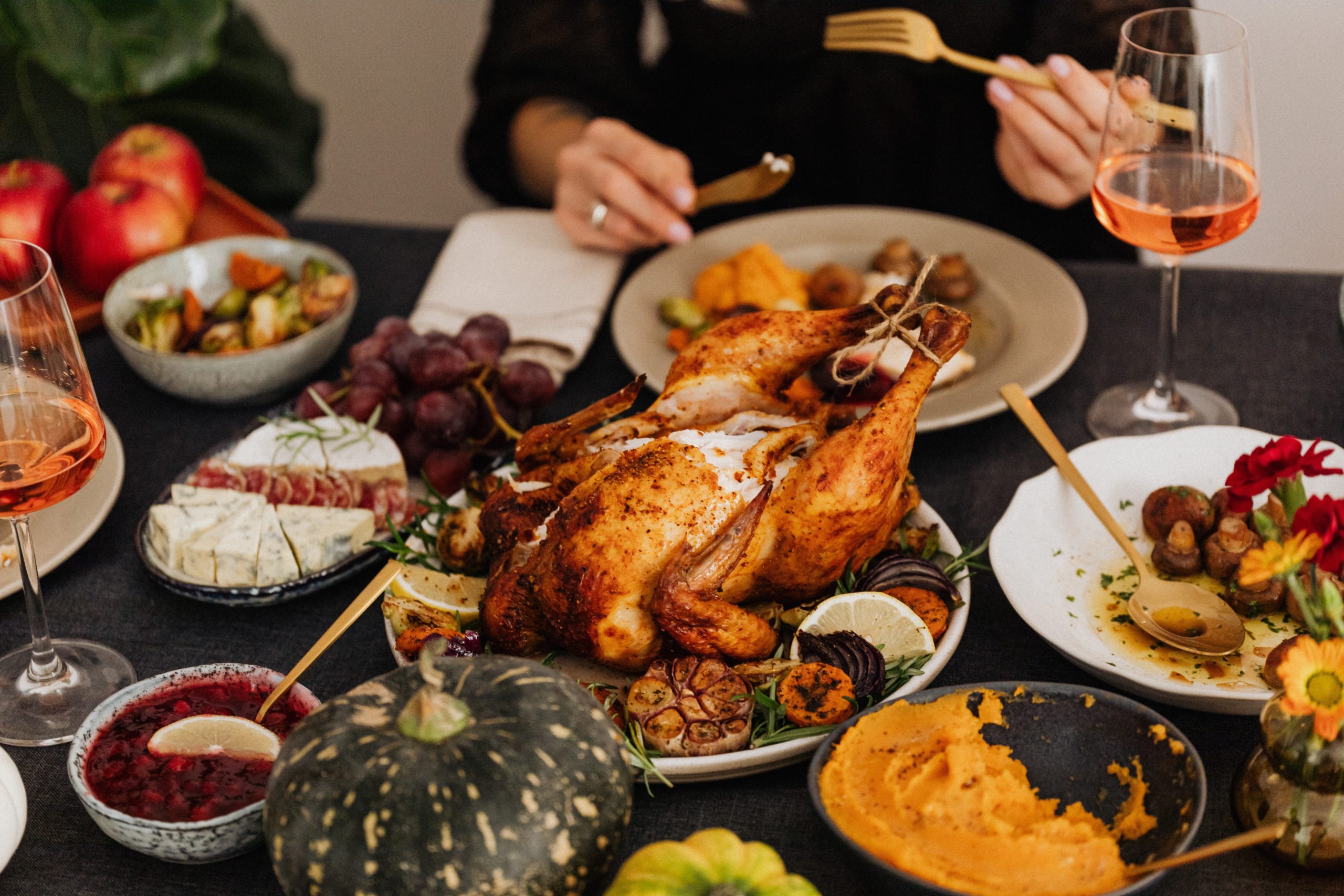Your whole health is greatly impacted by whatever you eat before your bedtime. It may lower your risk of contracting specific chronic diseases, maintain good brain health, and strengthen your immune system. You can adjust your diet since some foods and beverages contain qualities that help you sleep, which is one of the numerous methods you can employ to encourage restful sleep.
The meals you eat before going to bed can have a big impact on the quality of your sleep. Some foods can help you sleep better, while others can interrupt your sleep. In this context, it is critical to be attentive to the foods and beverages you consume before bedtime in order to get a decent night’s sleep. In this talk, we will look at certain things that are good to eat before night and some that should be avoided.
What Foods to Eat Before Bed?
It’s crucial to consume the correct foods before bed. Try to stay away from hot and high-fat foods. Additionally, you ought to stay away from foods that are high in carbohydrates. Pasta in moderation is acceptable. Just be careful not to overdo it with meatballs or other high-protein garnishes. Try a straightforward pasta dish with tomato sauce or pesto sauce if you must eat pasta before bed.
Before going to bed, it is generally advised to eat foods high in protein and low in fat and sugar. This could include:
- With whole wheat crackers, serve tuna or salmon.
- Greek yogurt topped with berries
- Chicken or turkey with veggies
- Eggs that have been hard-boiled
- Pineapple cottage cheese
- A small portion of nuts like almonds or walnuts
It is also critical to stay hydrated before bedtime by consuming water or herbal tea. Avoiding caffeine and alcohol near bedtime can also help you sleep better.
Reference: The Health Impact of Bedtime Eating
How Good can be Carbohydrate-Rich Foods be?
There are many advantages to eating foods high in carbohydrates before night. Fiber, which is included in the majority of whole-food carbs, slows down the release of energy and aids in stifling extreme hunger.
Additionally, they include protein, which promotes satiety and gives muscles the critical amino acids they need to grow and repair.
Eating a well-balanced diet rich in carbohydrates can be good for one’s overall health. Whole grains, for example, are high in nutrients such as fiber, vitamins, and minerals. They also have a lower glycemic index, meaning they are less likely to trigger a quick rise in blood sugar levels.
Fruits and vegetables are high in carbs and high in vitamins, minerals, and antioxidants. A diet high in fruits and vegetables has been linked to a lower risk of chronic diseases like heart disease and some types of cancer.
However, it is also critical to keep track of the amount and quality of carbohydrate-rich meals in your diet. Excessive consumption of refined carbohydrates, such as those found in sweet meals and white bread, can lead to weight gain and an increased risk of chronic diseases.
Should you Avoid Spicy Foods?
Even though many individuals enjoy having a snack before bed, it’s vital to keep in mind that spicy foods can make it difficult to fall asleep. You might get acid reflux or heartburn, which might keep you up at night. They also increase your internal temperature, which makes it difficult to fall asleep. So it’s better to avoid eating spicy meals before bed.
However, since spicy foods can be a part of a healthy diet and have many health advantages, it is not necessary to completely avoid them. It is better to avoid spicy foods right before bedtime or consume them in smaller portions if spicy foods do indeed interfere with sleep. Additionally, it’s critical to pay attention to how different types and doses of spice affect you because everyone’s response to spice may vary.
It’s also crucial to remember that, whether the food is spicy or not, having a big meal right before night can also make it hard to fall asleep.
How Healthy are Fruits?
The advantages of eating fruit before night are the subject of numerous hypotheses. Some say that eating fruit before bedtime will help you fall asleep faster, while others claim that fruits should be avoided right before bed.
In addition, experts believe eating fruit before night is not good as it may interfere with the digestion process and could enhance the risk of indigestion or heartburn. Consequently, it is preferable to have fruit at least three hours before night.
Can you Eat Cottage Cheese?
Cottage cheese can be a healthy addition to your diet. It has a good quantity of casein protein, which is a slow-digesting protein that can help you feel full and content throughout the night. It also has a moderate calorie count and is low in fat, making it an excellent choice for people seeking to maintain or reduce weight.
Cottage cheese can be eaten in numerous ways. It can be eaten simply or with salt and pepper, combined with fruit or vegetables, or used as a base for dips and spreads. It can also be used in a wide range of recipes, including casseroles, soups, and salads.
However, because cottage cheese can be rich in salt, it is recommended to buy a low-sodium variety or rinse it before eating. Furthermore, if you are lactose intolerant, it might not be the ideal choice for you.
How Healthy are Almonds?
You can obtain a good night’s sleep if you eat just before bed. Consuming foods rich in nutrients will hasten your ability to sleep. Almonds, for instance, are a great source of protein and have a lot of antioxidants. They also assist your body in producing melatonin, which promotes relaxation.
Additionally rich in fiber and monounsaturated fat, almonds. Additionally, they increase your metabolism, which is necessary for healthier sleep.
Is it Okay to Consume Honey Before Bed?
Honey, which includes natural sugars that can aid to boost insulin and tryptophan levels in the body, may be useful for sleep. Tryptophan is an amino acid that aids in the production of serotonin and melatonin, two hormones that govern sleep.
Honey is also a natural source of antioxidants and anti-inflammatory chemicals, which can aid in the reduction of inflammation and the promotion of overall health. It also has trace amounts of vitamins and minerals such as B6 and C, calcium, and potassium.
Furthermore, honey has traditionally been used as a natural medicine for sore throats, and coughs, and it can also help people with dry throats.
However, because honey is high in calories and sugar, it should be consumed in moderation. Too much honey can lead to weight gain and an increased risk of tooth decay. To reap the advantages of honey before night, take it in modest doses, such as a teaspoon or two combined with warm water or tea.
Can you Eat White Rice?
According to studies, white rice can help you sleep better at night. The food’s high carbohydrate and low fiber content may make you feel more at ease.
White rice, however, has a high glycemic index rating, which gauges how quickly a food boosts blood sugar levels. However, some foods are more conducive to sleep than others. Tryptophan, a precursor to serotonin, is also found in turkey and pumpkin seeds in addition to white rice.
However, white rice is a refined carbohydrate, which means it has been treated to remove the outer bran and germ layers, resulting in a loss of fiber, vitamins, and minerals.
Whole-grain rice variations like brown rice have more fiber and minerals than white rice. Excessive use of refined carbs, such as white rice, can lead to weight gain, elevated blood sugar levels, and an increased risk of chronic diseases.
Can you Eat Turkey Before Going to Bed?
Eating turkey before bedtime might be a good option for people looking for low-fat, protein-rich food that will help them sleep better. As previously said, turkey is a lean protein source that can help keep you feeling full and satisfied throughout the night. It can also help create feelings of peace and relaxation, making it easier to fall asleep.
Turkey is also high in tryptophan, an amino acid that aids in the production of serotonin and melatonin, two hormones that govern sleep. Eating turkey before bedtime may help to boost the levels of these hormones in the body, promoting better sleep.
Can you Eat Fatty Fish before Going to Bed?
For those looking for a source of protein and omega-3 fatty acids to help them sleep better, eating fatty fish before bed can be a healthy option.
Fatty fish like salmon, tuna, mackerel, and sardines are high in omega-3 fatty acids, which have anti-inflammatory qualities and have been associated with a lower risk of heart disease.
Omega-3 fatty acids have also been demonstrated to have a good effect on sleep; they can help lessen symptoms of insomnia and enhance overall sleep quality. Eating fatty fish before bedtime may assist to enhance the body’s levels of these necessary fatty acids, promoting better sleep.
It’s also worth noting that fatty fish is high in protein, which might keep you feeling full and content throughout the night.
What Meals Should you Avoid Before Going to Bed?
Here are some meals to avoid eating close to bedtime because they can affect your sleep:
- Caffeinated meals and beverages: Caffeine is a stimulant that can keep you awake and make falling asleep difficult. Caffeine-containing foods and beverages include coffee, tea, chocolate, soda, and energy drinks.
- Spicy Foods: Spicy foods can create heartburn and indigestion, which can make falling asleep difficult.
- High-fat foods: High-fat foods take longer to digest and might induce discomfort, making it difficult to fall asleep.
- Fried foods: Fried foods are heavy in fat and might create discomfort, making it harder to fall asleep.
- High-sugar foods: Sugary foods can induce a quick spike in blood sugar levels, making it difficult to fall asleep.
- Alcohol: Alcohol can promote tiredness, but it can also alter the sleep cycle and make falling asleep harder.
- Large meals: Eating a heavy meal close to bedtime might make falling asleep harder and create pain when sleeping.
It’s also worth noting that everyone is unique, and what works for one person might not work for another. It is important that you pay attention to how various foods and beverages impact you and adapt your diet accordingly.
Conclusion
The foods and beverages you consume before going to bed can have a significant impact on the quality of your sleep. Some foods, such as those high in protein and low in fat and sugar, can help you sleep better, while others, such as those high in caffeine, sugar, fat, and spice, can keep you awake. You can boost your chances of having a good night’s sleep by avoiding meals that can disrupt your sleep. It is also advisable to pay attention to how various foods and beverages impact you and change your diet accordingly. Remember that moderation is essential, and a modest snack or meal before bedtime may be the best option.

